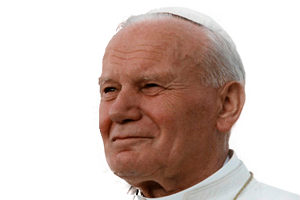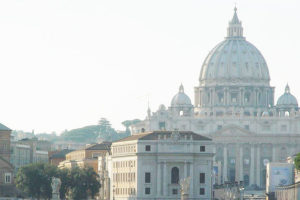CATHOLIC FAITHLINK: “[Feast of the Visitation:] Conclusion of the Marian Month: Homily of His Holiness Saint John Paul II” – 5.31.79

“‘And blessed is she who believed that there would be a fulfilment of what was spoken to her from the Lord’ (Lk 1:45). 1. With this greeting, the elderly Elizabeth exalts her young kinswoman Mary, who has come, humble and modest, to help her. Under the impulse of the Holy Spirit, the mother of the Baptist is the first in
» Read more
